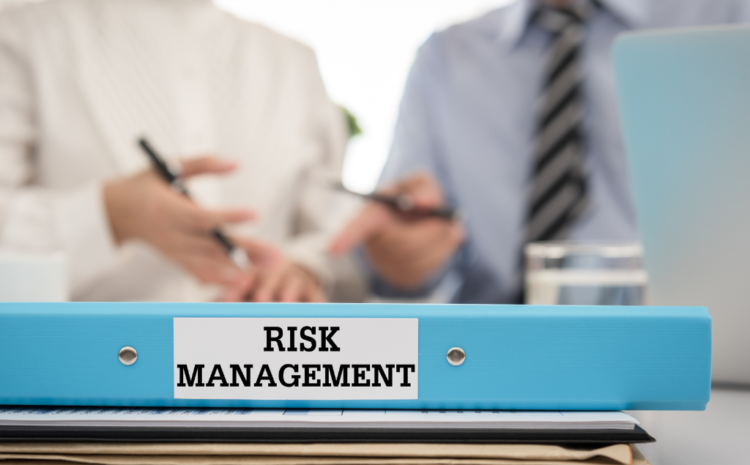
A risk management course introduces the concepts, methods, and tactics involved in discovering, assessing, and controlling risks within a company. It offers individuals the knowledge and talents to cope with uncertainties and make judgments that reduce probable risks. The course covers several issues, such as the beginnings and development of risk management as a science, risk assessment methodologies, risk reduction measures, risk analysis, and the usage of risk management frameworks.
Risk management certification is vital for firms in order to safeguard their assets, income, and general operations. Organizations can use it to proactively identify and evaluate risks, which paves the way for them to put effective controls, policies, and plans in place to reduce such risks. By controlling risks, businesses can strengthen their adaptability, safeguard their reputation, adhere to rules, and make wise strategic decisions.
A risk management course can considerably improve a person’s professional prospects by equipping them with the necessary skills. Businesses value professionals with strong risk identification, assessment, and management skills. Experts in risk management are highly sought after, especially in finance, insurance, and project management. An individual’s credibility in the job market is increased by their understanding of risk management and certifications, which show a dedication to excellence.
You may obtain the expertise, understanding, and tools critical to comprehend, assess, and manage risks accurately in a business context by taking an accredited risk management program.
The course’s primary focus is to provide participants with a broad overview of methods for risk management, ideas, and ideal procedures.
Risk management course students will gain an in-depth knowledge of the best practices, techniques and principles involved during risk management assessment. Certified risk management courses include various topics, including risk analysis, alternative risk procedures, risk identification, and risk assessment.
The subjects students will cover include risk analysis, assessment, identification and procedures. Participants will easily identify risks and how they affect the company’s growth. After identifying them, they will be taught how to mitigate them by establishing key strategies.
To facilitate the comprehension and execution of risk management principles, these courses frequently combine theoretical ideas, real-world case studies, and interactive exercises. Participants get practical training in completing risk assessments, implementing risk management frameworks, and using risk management strategies in actual situations.
Participants who complete a certified risk management course are given a prestigious certification or credential, verifying their risk management knowledge level. These certifications, which professional associations or academic institutions may provide, attest to a person’s proficiency and authority in risk management.
For learners to successfully determine, evaluate, and mitigate risks in various business scenarios, the best risk management courses in Singapore have been created to give students a full grasp of the fundamentals of risk management, methodologies, and strategies. Listed below are a few risk management programs’ objectives:
Riverstone stands out as the best option for Singapore risk management training. Riverstone provides a thorough program that gives learners the tools they need to successfully negotiate the challenging world of risk management, thanks to its remarkable reputation and dedication to quality. The following justifies your decision to select Riverstone:
The training experience of risk management training in Singapore provided at Riverstone greatly benefited from the opportunity to study under the top risk management professionals. A lot of information and experience are brought to the classroom by the professors, who are highly qualified professionals. They are skilled at sharing useful knowledge and industry best practices since they are thoroughly aware of the complexities and difficulties of risk management. As a result of receiving top-notch teaching from these professionals, participants can build a strong foundation in risk management ideas and methods.
The keenly designed curriculum is one of the main benefits of choosing Riverstone for risk management training. To give participants a thorough understanding of risk management principles and techniques, the curriculum is structured to cover a wide range of important topics. Every area of risk management is thoroughly examined, from risk identification and assessment to mitigation and monitoring. With a comprehensive understanding of risk management provided by the thorough syllabus, learners are better equipped to assess and manage risks in various business scenarios.
The primary goal of practical application through real-world projects is one of Riverstone’s risk management training’s defining aspects. Hands-on activities and simulations that mimic real-world risk scenarios are available to participants. These initiatives give participants vital expertise in risk identification, analysis, and mitigation in a controlled environment. Through this hands-on experience, they can hone the critical thinking, problem-solving, and decision-making abilities necessary for successful risk management in their future careers.
In today’s quick-paced world, Riverstone is aware of the value of flexibility. The training courses are created to fit a variety of participant commitments and schedules. To make sure that you may pursue risk management training without interfering with your current duties, Riverstone offers a variety of learning options, including part-time and online courses, for busy students and working professionals. It is convenient and available to everyone because of this flexibility, which lets you personalize your learning and advance at a rate that best meets your needs.
Riverstone is dedicated to providing interesting training sessions that go beyond passive learning. Several instructional techniques, including group discussions, case studies, role-plays, and practical exercises, are incorporated into the interactive sessions’ design. These exercises promote involvement and offer a practical way to learn risk management topics. Participants who actively participate in the sessions gain a deeper comprehension of theoretical ideas and practical skills that may be used immediately in real-world situations.
Participants receive a distinguished Certificate of Participation after completing Riverstone’s risk management training program. This credential attests to their commitment to continuing their professional development in risk management. It is a priceless credential that can advance professional opportunities and show knowledge to prospective employers. The certificate verifies the information and abilities gained during the course and indicates the participant’s proficiency in risk management techniques. It marks a turning point in one’s career and provides access to new chances.
Organizational Benefits
Personal Benefits
The following are some advantages of taking this risk management certification course for you:
Graduates can look into numerous work options in the industry after completing a professional risk management course in Singapore. Graduates in risk management in Singapore may pursue the following job paths:
People interested in pursuing professions in risk management and related disciplines and those already working in this area would benefit from enrolling in a risk management program in Singapore. Here are some people in Singapore who ought to think about implementing a risk management program:





Important Links
2024 © Riverstone Training
WhatsApp us